Paddle, sail, swim, waterski, row, wakeboard, scuba dive, whitewater kayak, windsurf, kiteboard. Between our lakes, rivers and Puget Sound, you can do just about any water sport imaginable in Greater Seattle, with one notable exception: traditional surfing. If you want to capture that fleeting feeling of riding a wave with neither boat nor wind providing an assist, you have to hit the road.
And, remarkably, you can go both west and east from Seattle in pursuit of the perfect wave.
Westport, Washington’s original surf town on the Pacific Ocean, has the best infrastructure — from a reliable surf break to surf shops, surf schools and a surf-themed hotel — for first timers to learn the sport and absorb Pacific Northwest surf culture.
But there’s also a way to hang loose if you go in the opposite direction. While heading east over the Cascades puts the ocean in your rearview mirror, Chelan is now home to a top-notch artificial wave where you can try river surfing — the wave comes at you from the front, rather than pushing from behind, like in the ocean.
Before a pilgrimage to both locations this summer, I had never reliably gotten up on a board despite surf lessons on five continents. Much to my surprise, I made more progress in a couple of hours at the Westport Jetty and Lakeside Surf than a lifetime of pathetic surfing attempts.
You don’t need to book a vacation to Costa Rica to learn to surf — some of the world’s best beginner waves are in the Evergreen State. Here’s the scoop on the swells.
Handmade marvel: Lakeside Surf, Chelan
The town at the foot of Lake Chelan is the port of embarkation for North Cascades mountain town Stehekin and a scenic spot nestled in vineyard and fruit country. At 300 miles inland from the Pacific coastal surfing hub of Westport, it seemed an unlikely destination for surfers — until three years ago. That’s when Slidewaters Waterpark debuted Lakeside Surf, the world’s most powerful artificial standing wave. (At 50 feet across, it was also the biggest such wave until March, when a 100-footer opened on Oahu.)
German company Citywave has been literally and figuratively making waves in Europe and Asia for several years, but the Washington wave is its first stateside iteration. Slidewaters owners Burke and Robert Bordner saw a demo at an amusement trade show in 2013 and decided to become early adopters in the North American market. Siemens built the wave pool, where 12 pumps discharge 1,000 gallons of water per second each. At its peak, a 5.5-foot wave can pummel surfers at 17.5 mph.
The wave wasn’t cranking nearly that hard as I gingerly sat on the pool edge and contemplated lowering my surfboard into the flow. It looked like the powerful current would send the board — and me — straight back to the shallow wake.
“If you can balance, you can get on the board,” promised instructor Evan Dupue. He assured it’s similar to powder snowboarding — not much help to a die-hard skier.
But Dupue talked me through the right technique to avoid an instant wipeout and stabilized the board for me on my first entry. I held onto the wall for dear life as I wiggled my feet into position based on his guidance. After squatting and loading most of my weight into my back foot, I took a deep breath and let go.
I didn’t fall immediately, but I didn’t go anywhere either. It took a few runs to comfortably counteract the wave’s forward pressure and attain equilibrium, then start incorporating some body lean to send the board one direction or the other along the wave. By the end of my 45-minute session ($40), I was making a few turns — something I had never accomplished on an ocean wave.
But don’t be fooled into thinking daily sessions at Lakeside Surf will equip you to ride the Banzai Pipeline. Standing waves allow you to practice so-called river or inland surfing, where the current comes at you from the front, while ocean surfing requires you to catch the wave from behind. In river surfing, there is no “catching the wave” at all. My instructors insisted these two types of surfing are distinct sports that entail different stances and body movements to successfully ride the wave. Especially for beginners, don’t expect your skill set from the ocean to translate to a standing wave, or vice versa.
Pros, however, relish the chance to practice tricks on a standing wave because they can so quickly hop back on the wave. When I took a lesson in June, I had just missed a visit from Team Lib Tech, the Sequim-based surf and snowboard manufacturer, who had trekked over to try out new prototypes. Lakeside Surf carries a fleet of Lib Tech short boards — since you don’t need to “catch the wave,” there’s no reason to surf a beginner-friendly longboard on a standing wave.
Lakeside Surf has a stunning natural setting. While you wait your turn or spectate in the stands, you’re looking out at terraced vineyards, the country’s third-deepest lake and the craggy peaks of the North Cascades.
Expect to have an audience, however, as the Lakeside Surf complex is a stylish beach club with deck chairs, umbrellas, taco stand, coffee kiosk and bar with light fare. Entrance is free — you only pay to surf — which turns even your intro lesson into a spectator sport. The stadium-style seating and JumboTron make Lakeside Surf competition-ready. Come Labor Day weekend, the venue plays host to the annual Continental Surf Cup, where the best river surfers from Team USA and Team Europe duke it out for wave supremacy.
The other caveat to Lakeside Surf: You will go through the washing machine. What does 12,000 gallons of water per second feel like after you’ve wiped out? Spin cycle, set on high.
My first crash was a shock, and I instinctively went into a duck-and-cover position to protect my head. That said, the pool is designed to be deep enough at the wave crest to avoid collisions with the pool floor, but shallow enough on the back end of the wave for you to stand up and exit. Even at the very back of the pool, the current sometimes pinned my board down. This powerful wave is not to be trifled with, and in the event of an emergency, the staff can turn it off instantly.
Lakeside Surf runs two beginner sessions per day, so book ahead. The rest of the day is reserved for “anybody sessions,” with two advanced sessions sprinkled into the schedule. There are even floodlights for night sessions. The water is heated to a toasty 80 degrees and the air temp in Chelan is often hotter than that in summer, so board shorts and a rash guard (more for sun protection, since you are never lying on the board) are sufficient. Wetsuits are available to rent on chilly days.
All time slots are 45 minutes long, which was plenty for me in a session with just two other surfers, when we were expected to cap each turn in the pool at 60 seconds. On my final runs, I was physically fatigued and my form fell apart. I wiped out instantly after my last drop-in. But I lucked out with an uncrowded early-summer weekday; expect full sessions with a maximum of 12 surfers on peak days and weekends. Bookings are available through Aug. 31.
While I ended on a rough note, during the sweet spot when I had started to figure out the wave and before I got tired, something clicked. I wasn’t just floating on water — I was practically levitating. After spending nearly half my life flailing in the water, I was finally surfing.
Natural waves: Westport Jetty
The flotilla of deep-sea fishing charter boats bobbing in the Westport harbor may give you the impression Westport is strictly a fishing town, but you’ll find a different scene at the north end of Westport Light State Park if you scamper up the embankment overlooking the beach. On a summer weekend day, upward of 100 surfers take to the waves at Washington’s most reliable surf break.
The waves here may not be the biggest or cleanest, but reliability counts for a lot — if the ocean is flat, there is no surfing to be done, period. The key feature at this beach is the jetty, which separates the ocean from the channel into Grays Harbor. Best of all for new surfers, the jetty created a massive shallow sandbar, so you can catch waves while standing waist-deep in the water.
“In a lot of other places in the world, the water is immediately deep, so you’re forced to paddle. But paddling makes you tired,” said BigFoot Surf instructor Brian Calder. “You can accomplish a lot here from a beginner’s standpoint because you can walk into the ocean and get repetition.”
That natural feature made an immediate difference during a lesson from Calder ($169 for two hours). Instead of battling the waves while paddling out to get in position for a practice run, I was able to catch waves over and over in quick succession while Calder stood nearby and coached. He showcased a technique called the “chicken wing stand-up,” which gets you from prone to standing without first going to your knees.
Most of my prior surfing experience was on foam longboards, the typical beginner board you can buy at Costco, but BigFoot provides even first timers with epoxy boards from Degree 33 and Walden.
Only the hardiest surfers can truly spend all day in the water, so part of Westport’s appeal is its surf-town feel. I booked a motel room at LOGE Westport, the surf-themed iteration of this Washington-based outdoor adventure lodging brand. From copies of Surfer Journal to a wetsuit rinse station and a garage packed with rental boards, LOGE provided both the ambience and the practical infrastructure for a surf trip. The expansive grounds include a cafe, outdoor kitchen, grills, fire pits, a grassy lawn and a stage. With free live music on Saturdays through Sept. 2 (plus a Labor Day concert on Sept. 4), LOGE is worth a stop even if you’re staying elsewhere.
LOGE is conveniently located just down the road from The Surf Shop. Founded in 1986 by Al Perlee, a Rose Bowl-winning Stanford defensive lineman turned surf bum who is among the pioneers of Pacific Northwest surfing, Washington’s first surf shop remains Westport’s go-to destination for any and all gear ($40 for an all-day rental package including surfboard, wetsuit, gloves and bootees). It carries several national brands, but if you want to add some surfer style to your wardrobe with locally designed threads, check out Swellone Surf Company in neighboring Grayland.
Heading into a warm and sunny weekend, the raw natural beauty below the bluff was an idyllic setting for a sunrise session. Don’t let Pacific Ocean temps deter you — neoprene is magic. You will be toastier in your wetsuit than you could ever imagine.
While I practiced in the shallows, I watched seasoned locals paddle out and carve elegant lines on the ocean spray. I made sure to heed Calder’s advice. “The first breaking wave off the jetty is for the locals, the kings and queens of surfing, and you need to give them their space,” he said. “Surf to your ability level — respect the locals and the ocean.” Dangerous riptides are a prime reason not to push your limits.
Surfers can be notoriously territorial, and while I didn’t encounter any hostile localism at Westport, surfing’s growing popularity in Western Washington, combined with limited jetty parking, may occasionally raise tensions. It’s unclear how ongoing plans for a links-style golf course and inn inside the state park will impact beach access and parking capacity, which are familiar issues across outdoor recreation, from hiking to backcountry skiing.
Once you’re on the wide expanse of beach, however, the surfing possibilities along Washington’s 157 miles of coastline start to feel endless. I wouldn’t tell you where the hidden surf breaks are, even if I knew, but for Calder, there’s one simple fact that drew him to set down roots here.
“In California or Hawaii it can get flat,” he said. “But there’s always a wave in Westport.”
Plan your adventures throughout the West Coast at westcoasttraveller.com and follow us on Facebook and Instagram @thewestcoasttraveller. And for the top West Coast Travel stories of the week delivered right to your inbox, sign up for our weekly Armchair Traveller newsletter!

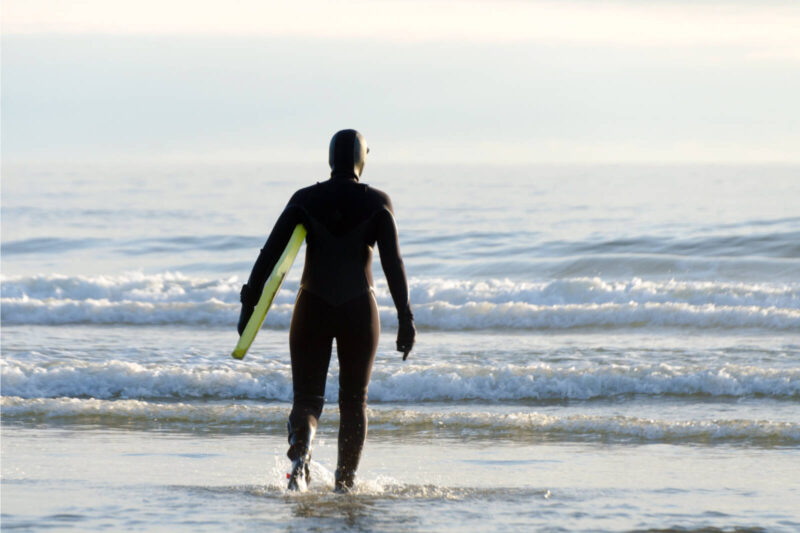
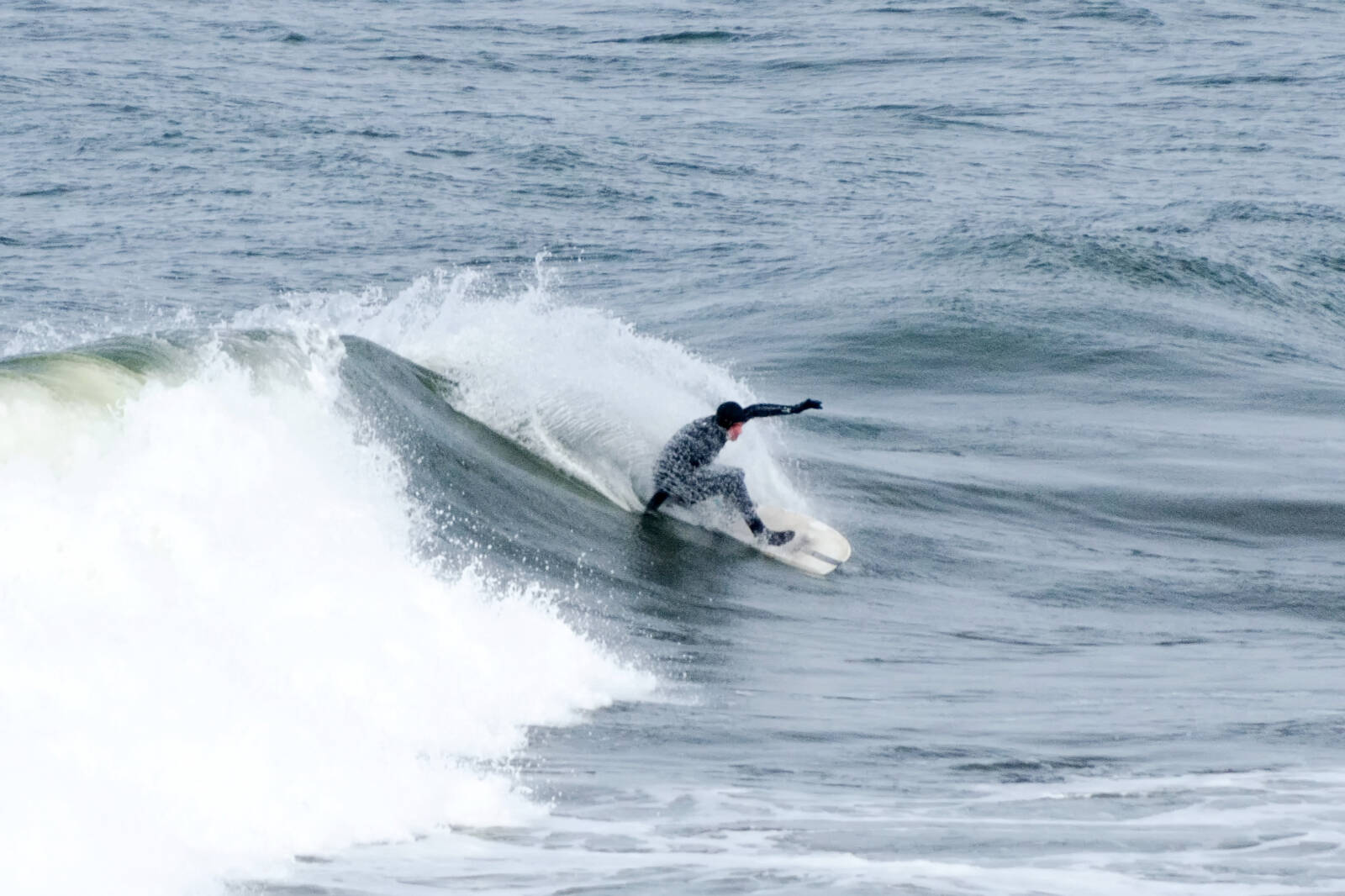
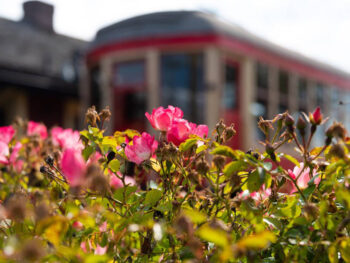
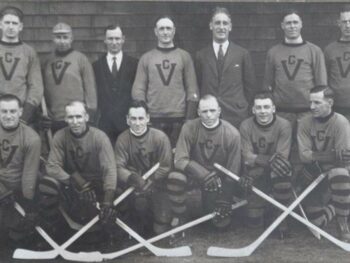
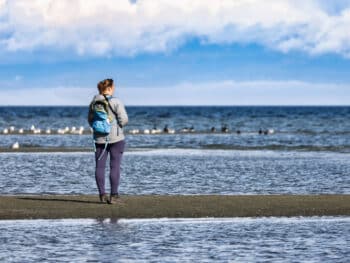
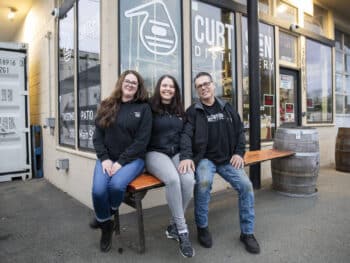
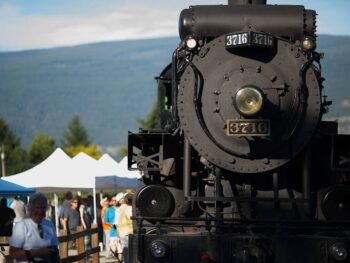
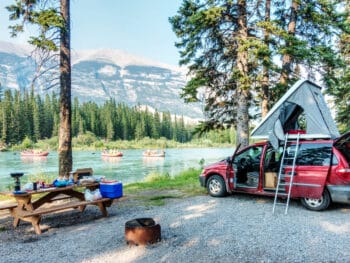



 Discover Seattle
Discover Seattle